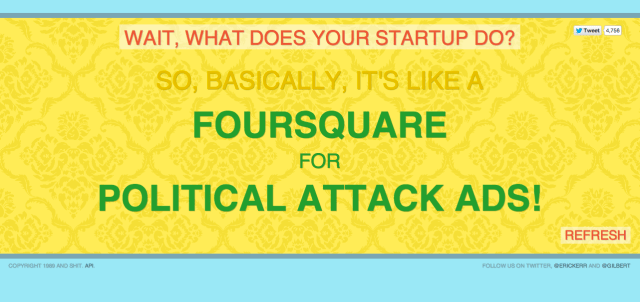“Creativity always comes as a surprise to us; therefore we can never count on it and we dare not believe in it until it has happened. In other words, we would not consciously engage upon tasks whose success clearly requires that creativity be forthcoming. Hence, the only way in which we can bring our creative resources fully into play is by misjudging the nature of the task, by presenting it to ourselves as more routine, simple, undemanding of genuine creativity than it will turn out to be.”
~Albert Hirschman
In 1959, the Karnaphuli Paper Mill was in trouble. A major development project in modern day Bangladesh, it relied on the surrounding bamboo forest for raw material. But after seven years of progress toward profitability, the bamboo suddenly flowered and then died. The flowering, a phenomenon that occurs only once every 50 to 70 years, surprised the mill operators. Worse, they discovered that the dead bamboo disintegrated during shipment to the mill and that it would take several years before new bamboo grew large enough to be harvested. The young project suddenly faced the unexpected necessity of replacing 85% of its material base.
The mill owners initially responded by importing pulp for the mill at great expense. But then the mother of invention got to work. An organization utilized the area’s many waterways to cheaply transport bamboo from villages across the country to the mill; the mill found other lumber sources; and a research program identified more reliable and faster growing species to replace the lost bamboo. What seemed a crippling disaster actually improved the mill and surrounding economy.
This story of the Karnaphuli Paper Mill comes from the late economist Albert Hirschman (1915-2012), whose life and work was recently chronicled in a New Yorker book review of his biography. The review describes a practitioner of the dismal science who volunteered to fight fascism during the Spanish Civil War. Hirschman writes about development projects like the Karnaphuli Mill, but the hidden lessons he draws from them on the connection between ignorance and creativity inform new undertakings in any field.
In his 1967 essay “The Principle of the Hiding Hand,” Hirschman noted that major projects consistently go over budget. But rather than indicting them, he observed that unforeseen costs were often counteracted by unanticipated positive developments. Often, demand turns out to be higher than projected. In other cases, challenges spur creative solutions that increase the payoff or provide positive externalities.
Hirschman offers as an example an irrigation project in Peru beset by crippling political delays. Rather than accepting failure, its undertakers transformed it into a pilot project that helped landless farmers acquire their own small family farms. An effort to improve pastures in Uruguay by introducing legumes into the soil proved unexpectedly difficult, but spurred research and experimentation that helped develop an innovative farming culture across the country. Tunnelling through the Hoosac mountain in Massachusetts went ten times over budget, but the benefits of the completed railroad were such that the project was worthwhile.
This led Hirschman to describe the following paradox in such cases:
If the project planners had known in advance all the difficulties and troubles that were lying in store for the project, they probably would never have touched it, because a gloomy view would have been taken of the country’s ability to overcome these difficulties by calling into play political, administrative, or technical creativity.
In some, though not all, of these cases advance knowledge of these difficulties would therefore have been unfortunate, for the difficulties and the ensuing search for solutions set in motion a train of events which not only rescued the project, but often made it particularly valuable.
The problem, as noted in the opening quote, is that each project had unforeseen challenges that demanded creative solutions. While the essay does not provide supporting data, Hirschman suggests that this is a common occurrence. But entrusting the success of million or billion dollar projects to the mercurial forces of creativity is not a comforting thought. As a result, Hirschman argues, people prefer to retroactively describe their salvation at the hands of a creative solution to a preconceived plan rather than fortunate muddling:
We are correspondingly unwilling to concede – in fact we find it intolerable to imagine – that our more lofty achievements, such as economic, social or political progress, could have come about by stumbling rather than through careful planning, rational behavior, and the successful response to a clearly perceived challenge. Language itself conspires toward this sort of asymmetry: we fall into error, but do not usually speak of falling into truth.
So rather than acknowledge that every project will face complexities that cannot be planned for, planners describe new projects as simple implementations of well-established ideas or as identical to past projects. When challenges arise mid task, it will be too late to turn back and people will be forced by necessity to find creative solutions. Ignorance, Hirschman argues, is a crutch that allows the risk-averse to embark on or approve challenging projects.
From our perch in Silicon Valley, Hirschman’s ideas prove an articulate analytic tool. For example, the proliferation of “this for that” startups (like “Airbnb for boats” and “Airbnb for cars”) can reflect the bias of presenting all the challenges and uncertainties of building a novel business as a simple implementation problem – the equivalent of development economists in Hirschman’s day describing every project as a simple matter of copying a pre-existing model. People may argue over whether a huge valuation for a young company means that there is a bubble because they disagree on the potential for the team to create value in unexpected ways.
Hirschman’s ideas also nicely bifurcate risk between the acceptable and the non-acceptable. Ride sharing app Lyft risks being shut down as an unlicensed taxi service. However, that risk appears to have inspired the company to focus on making the driver-passenger relationship a friendly one between peers, complete with a welcoming fist bump. If that drives its adoption and popularity, then it’s a driver of opportunity as much as a risk. On the other hand, the risk of a foreign founder with an unclear visa situation seems clear.
Ignorance can help an entrepreneur take on a task whose unknown challenges would otherwise prove paralyzing. Yet Hirschman viewed ignorance as a crutch that people should learn to move beyond. We see that in Silicon Valley, with recognition of how great ideas often develop unexpectedly and an appreciation of experimentation and failure.
But Hirschman believed that failure and creativity extend to fields far beyond the entrepreneurial or artistic. Building dams does not strike us as a creative pursuit once plans have been drawn, and funders would not appreciate an admission that unexpected problems will need to be solved on the fly, yet that is often the case. In the same way, a seemingly routine sale or marketing event can suddenly prove intractable. Invested in the task, we’ll dig in and find a creative solution.
Afterward we downplay the novelty of each situation, maintaining the illusion of a routine implementation that we will not hesitate from repeating. But it’s not an ideal state of affairs. For as soon as the veil is lifted too early, the prospect of looming problems will be paralyzing. But Hirschman demands that we recognize the truth, lose our crutches, and learn to embrace the doubt associated with tackling a challenge we don’t yet know how to solve. No worthwhile project comes without the worry that we may not find answers to its many challenges, but the creativity it demands may lead to solutions better than we ever expected.
This post was written by Alex Mayyasi. Follow him on Twitter here or Google Plus. To get occasional notifications when we write blog posts, sign up for our email list.





